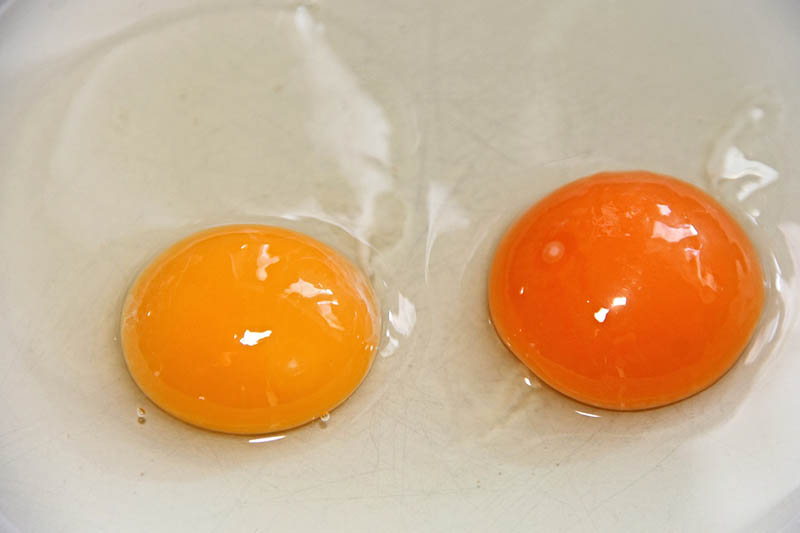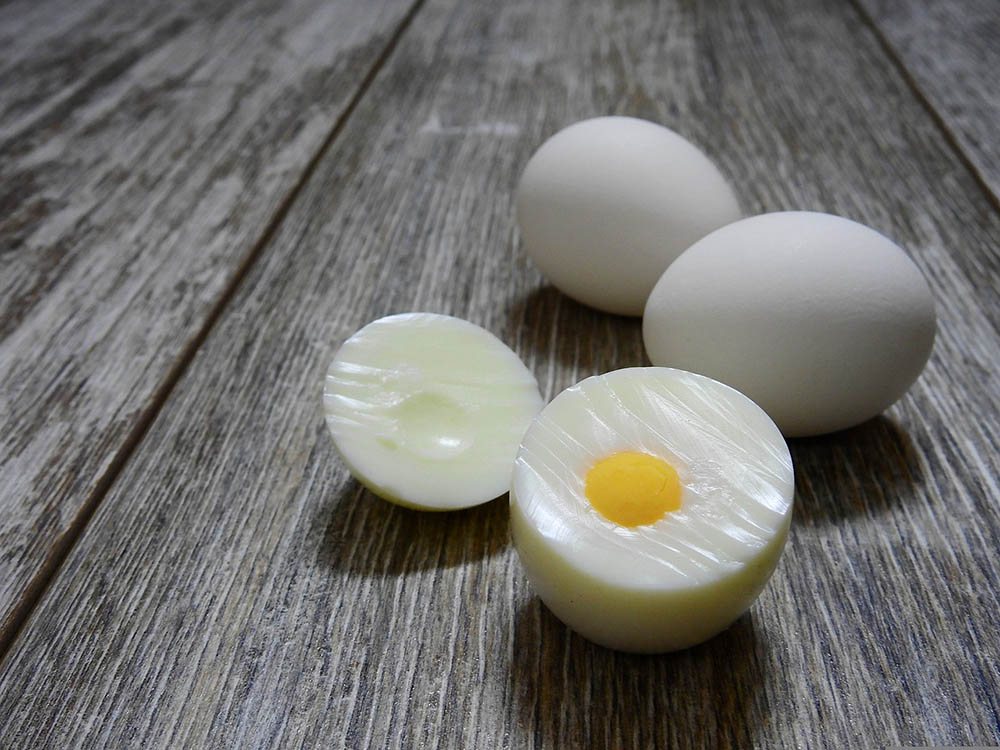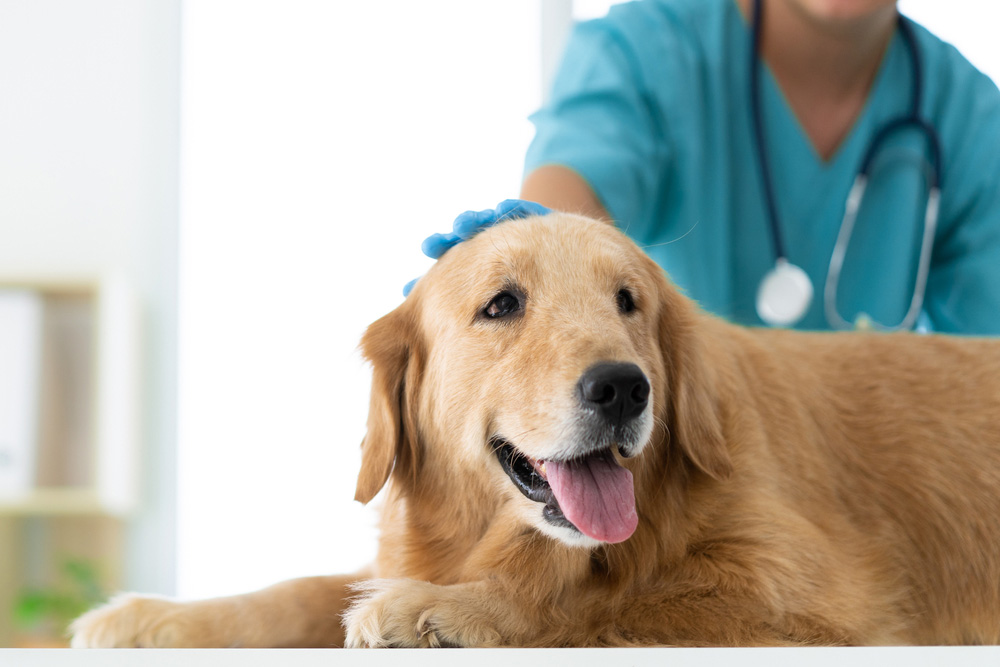Ask your dog how he likes his eggs, and he’ll probably answer, “Yes, please!” Most dogs enjoy eating eggs, whether it’s over-easy, sunny-side up, scrambled, or any other way you can think of preparing them. But how about raw eggs? Is it safe to feed your dog a raw egg?
The answer is no. It’s best to avoid feeding your dog raw eggs. While there are conflicting opinions on the matter, the risks of giving your dog a raw egg outweigh the potential benefits.
Is It Ever Okay to Feed Dogs Raw Eggs?
The American Kennel Club recommends sticking to cooked eggs for dogs. There are certain risks associated with feeding it raw:
- Salmonella: Salmonella is a type of bacteria that can be found on the surface of raw eggs. Both dogs and humans can contract Salmonellosis, a serious foodborne illness, by ingesting contaminated raw eggs. Symptoms include fever, vomiting, and diarrhea.
- Biotin Deficiency: Egg whites contain an enzyme called avidin. This enzyme works by binding biotin, a type of B vitamin that supports proper digestion, metabolism, and skin and coat health. When dogs consume raw egg whites on a regular basis, the avidin enzyme may eventually cause biotin deficiency in their bodies.
- Other Bacteria: Eggs can go bad quickly, even if stored properly. If your dog eats a bad egg, he could suffer from food poisoning.
Despite these potential risks, however, there’s no need to panic if your dog accidentally consumes a raw egg. Unlike human beings, dogs have a different pH level in their stomach, which makes them more resistant to foodborne illnesses.
They’d also need to consume a large number of raw egg whites for an extended period of time in order to develop a biotin deficiency.
In addition, many dog owners who practice raw feeding, which often includes raw eggs, swear by the positive effects they’ve seen in their pets. Some people crack raw eggs over their dog’s food. However, you should always consult your vet before feeding your dog raw eggs.
Are Eggs Good for Dogs?

Eggs are packed with protein, vitamins, minerals, and fatty acids that can help keep your dog healthy. They are a great natural source of essential amino acids, which are important for your pup’s healthy muscle and tissue development. Eggs are also high in omega-3 fatty acids, which can help keep your dog’s skin and coat healthy.
Even egg shells offer some health benefits for your dog, as they are a great source of calcium and other minerals. So yes, eggs can be an excellent addition to your dog’s diet.
How to Safely Feed Eggs to Dogs
Prepared properly, eggs are a fantastic source of protein and other nutrients for your pup. Here are some tips to follow when feeding eggs to your dog:
Only Give Your Dog Cooked Eggs

Cook eggs first before giving them to your dog. You can boil, scramble, or poach them. This will kill any Salmonella bacteria that may be present on the egg and prevent food poisoning.
When cooking eggs for your dogs, keep it as plain as possible. Avoid frying it in oil, adding salt and spices, or cooking it with other ingredients.
Keep Serving Sizes Small
Eggs are high in fat and calories, so don’t feed your dog too much. Give it as an occasional treat, not as a meal replacement. Also, eating too many eggs can cause gas, and no one wants that!
Store eggs properly
Store your eggs in the refrigerator to keep them fresh and prevent spoilage.
Always Check Eggs for Discoloration or Bumps
Watch out for signs of spoilage before feeding your dog eggs. Discolored shells, bumps, cracks in the shell, or a thick white film around the egg are all signs that an egg has gone bad.
If you see any of these signs, discard the egg and choose another one.
Observe Your Dog for Signs of an Egg Allergy
Eggs are one of the top allergens for both dogs and humans. Dogs who are allergic to eggs may exhibit symptoms such as itching, hives, wheezing, coughing, and vomiting. If you notice any of these symptoms after your dog eats an egg, stop feeding them eggs immediately and have him checked by your vet.
Consult Your Vet Before Feeding Eggs to Your Dog
If your dog has any health issues, or if you’re not sure of the best way to introduce eggs into their diet, consult your vet before doing so. Your vet can advise you on the best way to feed eggs to your dog so that they get all the nourishment and none of the risks.

Conclusion
Eggs are one of nature’s superfoods, and when fed properly, they can be a nutritious and delicious treat for your pup. However, it is important to practice safe handling and proper preparation when feeding eggs to your dog, especially raw eggs.
By following the tips above, you can share this tasty treat with your dog without compromising its health and safety.
Related Read:
- Can Dogs Be Allergic to Eggs? Vet Approved Answer
- Can Dogs Get Salmonella? Vet-Reviewed Facts & Treatment Options
Contents
- Is It Ever Okay to Feed Dogs Raw Eggs?
- Are Eggs Good for Dogs?
- How to Safely Feed Eggs to Dogs
- Only Give Your Dog Cooked Eggs
- Keep Serving Sizes Small
- Store eggs properly
- Always Check Eggs for Discoloration or Bumps
- Observe Your Dog for Signs of an Egg Allergy
- Consult Your Vet Before Feeding Eggs to Your Dog
- Conclusion










